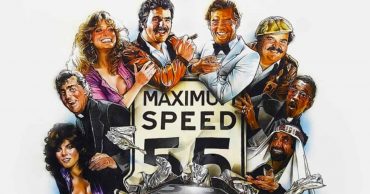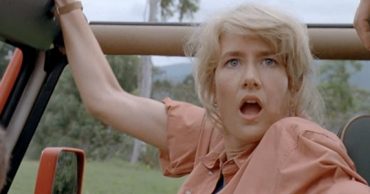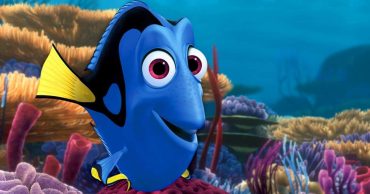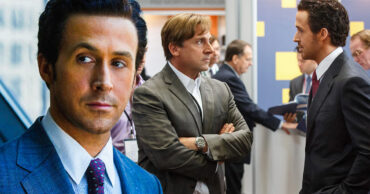Quentin Tarantino is undoubtedly one of the most unique creative minds to ever emerge in cinema. His movies have catapulted him to massive success and etched themselves into pop culture. He is renowned for his slick, authentic dialogue, extreme violence, and the creation of his own universe where his films all tie together in some way or another.
Tarantino started to immerse himself into cinema from a very young age. He would often visit the movies with his mother and watch a plethora of films of all genres. To that, he has long been on record for proclaiming himself as a true cinephile, and this is evident in his movies, which often pay excellent homage to his favourite films. Thanks to his huge presence in the film industry, moviegoers have remained curious about which films inspired Tarantino before he became the Hollywood he is today. Although Quentin Tarantino has talked about his favourite films on many different occasions, these 5 movies are ones that have consistently come up when quizzed about his favourites.
1. The Good, the Bad and the Ugly (1966)
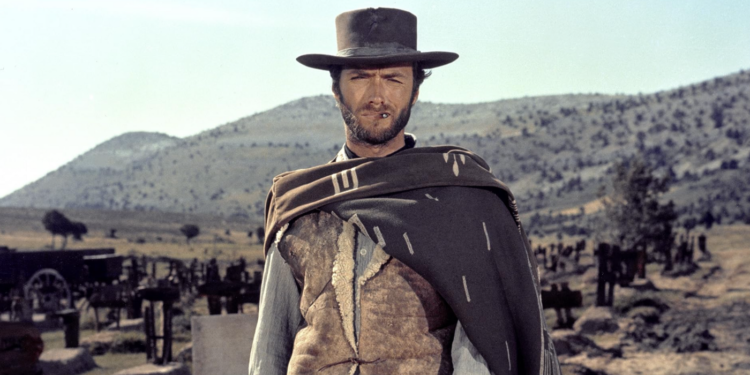
Quentin Tarantino truly has an eclectic taste when it comes to movies. Although his movies are spliced with intense violence, they all carry undertones of comedy and drama. This is clearly a result of such an open mindedness he possesses when watching movies. However, it is also evident that Western movies are amongst his favourite genres. Although he has stated that his top 5 movies are interchangable, The Good, the Bad and the Ugly has consistently remained at the top of his list for a number of decades.
The Good, the Bad and the Ugly is a celebrated spaghetti Western from legendary filmmaker, Sergio Leone. Set during the American Civil War, the movie follows three gunslingers – Blondie (Clint Eastwood), Angel Eyes (Lee Van Cleef), and Tuco (Eli Wallach) – as they embark on a search for a hidden cache of gold. With its intricate plot and complex character dynamics, the film has become an icon in the Western genre, praised for its gritty realism and innovative cinematography.
The Good, the Bad and the Ugly also revolutionized the genre by introducing a morally ambiguous and anti-heroic protagonist, which became a defining characteristic of subsequent Western movies. Furthermore, its renowned score, composed by legendary Italian composer Ennio Morricone, further solidified its impact. The film’s influence can be seen even decades later when Quentin Tarantino decided to hire Morricone himself to score his own Western film The Hateful Eight as a direct homage to the masterpiece that is The Good, the Bad and the Ugly.
2. Rio Bravo (1959)
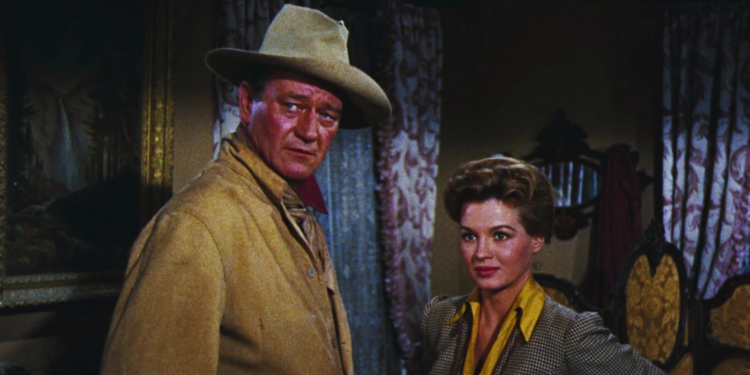
As documented in his book, Cinema Speculation, Tarantino has been a fan of Howard Hawks since he was a young child. Howard Hawks was a trailblazing filmmaker, renowned for creating iconic movies within various genres. However, he particularly left an indelible mark on the Western genre, cementing his status as a visionary director. His most revered work, Rio Bravo, starring the legendary John Wayne, exemplifies Hawks’ mastery in crafting compelling narratives. Rio Bravo follows the story of Sheriff John T. Chance (Wayne), who has to defend his small town against a ruthless gang. The film skillfully weaves together elements of camaraderie, loyalty, and tension, showcasing Hawks’ ability to create vivid characters and engaging plotlines.
3. Blow Out (1981)
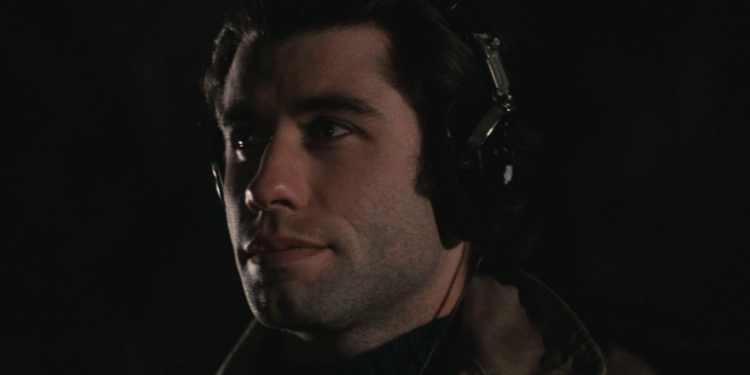
Blow Out, directed by Brian De Palma in 1981, is a gripping thriller that follows the story of Jack Terry, a sound designer for B-grade horror movies. One fateful night, while recording sounds in a park, Jack inadvertently captures audio evidence of an assassination conspiracy involving a presidential candidate. Realizing he has stumbled upon a shocking truth, Jack becomes embroiled in a dangerous game of cat and mouse with a merciless killer. The film brilliantly leverages suspense and tension, exploring themes of surveillance, deception, and corruption in a world where truth is elusive.
In a fascinating twist of fate, Blow Out played a vital role even decades later. Harvey Weinstein, then the head of Miramax, was initially hesitant about John Travolta‘s casting in Quentin Tarantino’s Pulp Fiction. Tarantino, a longtime admirer of Travolta’s work, urged Weinstein to watch Blow Out, where Travolta delivers a powerhouse performance. Weinstein, after witnessing Travolta’s undeniable talent, wholeheartedly approved Tarantino’s casting choice, leading to the iconic role that revitalized Travolta’s career.
4. Taxi Driver (1976)
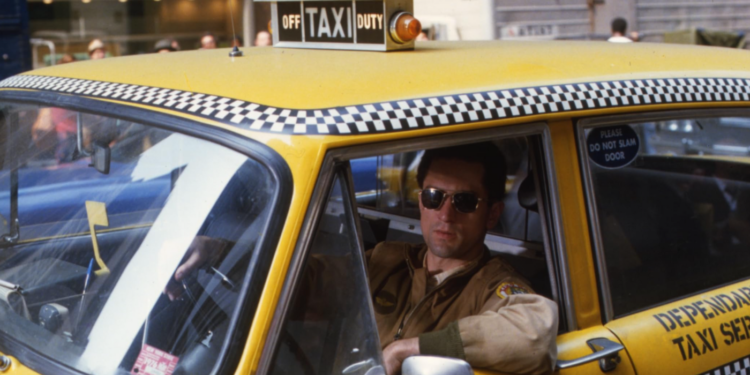
Martin Scorsese‘s Taxi Driver is a classic crime drama from 1976 and has long been praised by Quentin Tarantino. Closely following the life of Travis Bickle (Robert De Niro), the film descends into the grimness of New York City as Bickle mentally deteriorates alongside it. A war veteran who now works as a taxi driver, Bickle starts to deteste the cesspool that New York has become and quickly descends to a dark, disturbing place. After he meets a young prostitute (played by Jodie Foster), Bickle starts to prepare for a violent showdown, resulting in one of the most iconic standoffs in cinema history.
Tarantino has expressed his adoration for Taxi Driver across a range of interviews and goes in great depth in his book, Cinema Speculation. What’s more, Tarantino’s tenth and final movie, The Movie Critic, is said to draw inspiration from Taxi Driver. In an interview with French new outlet, Liberation, Tarantino stated that the lead character in The Movie Critic is inspired by Travis Bickle.
5. His Girl Friday (1940)
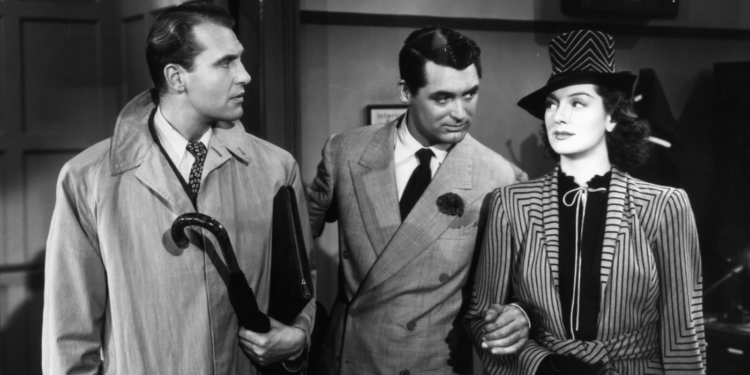
His Girl Friday is a classic romantic comedy movie from the 1940s that has remained a beloved icon, and a favourite for Quentin Tarantino, throughout the years. The movie follows the story of Walter Burns, a fast-talking newspaper editor, and his ex-wife, Hildy Johnson, who is an immensely talented reporter. When Hildy comes back to the office to inform Walter of her plans to remarry and quit her job, he becomes determined to win her back and sets out on a whirlwind campaign of sabotage to keep her on board. While it may seem odd for a romantic comedy to be amongst Quentin Tarantino’s favourite movies, this pick proves that his taste extends beyond the realms of violent revenge movies. In fact, the first movie Tarantino ever wrote was True Romance, which he claims is a romantic movie through and through.
 Follow Us
Follow Us


